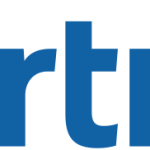- Industri: Consulting
- Number of terms: 1807
- Number of blossaries: 2
- Company Profile:
Gartner delivers technology research to global technology business leaders to make informed decisions on key initiatives.
This segment includes copier and printer services.
Copier services — Copiers perform image capture and transfer. This category includes analog (optical technology) and digital (digital scanning and printing technology) copiers.
Printer services — A printer is the peripheral output device of a computer system for producing computer-generated images on paper using various marking technologies. To be classified in this segment, the device needs to be capable of using plain or coated papers with a minimum size of International Organization for Standardization A4, U.S. size A (letter) or continuous forms with an 8-inch print width or greater, but it excludes products that support paper widths above A2 or U.S. size C (17 inches x 22 inches). The definition also excludes other classes of application-specific printers, such as point-of-sale printers, airline ticket printers, video printers and dedicated photo printers.
Industry:Technology
Document management (DM) is a function in which applications or middleware perform data management tasks tailored for typical unstructured documents (including compound documents). It may also be used to manage the flow of documents through their life cycles.
Long-established document management products have traditionally focused on managing a small group of documents vital to the business. However, the DM market is transforming into a two-tier market, with new competitors building out horizontal capabilities to manage the many documents created in the course of everyday work life.
Today, enterprises are looking for ways to cut costs, reduce risk, and enable competitive opportunities, resulting in new market opportunities and competitive forces. Vendors are scrambling to compete by leveraging their existing market positions as well as experimenting with new approaches such as open source and software as a service (SaaS).
Industry:Technology
Dock scheduling is the use of optimization and scheduling tools to automate dock door and yard schedules. In this system, a dock calendar is maintained, showing all operating constraints, such as open/close time, commodities accepted through the dock door (e.g., refrigerated or ambient) and trailer types accepted. Advanced dock scheduling systems consider both transportation constraints and upstream warehouse constraints like labor and other warehouse resource constraints.
Industry:Technology
DNA logic utilizes the properties of DNA molecules for storage and processing. Logic functions are formed from the binding of DNA molecules in various combinations. A DNA “AND” gate, for example, would chemically join two separate DNA codes in an end-to-end string. Rapid search functions are possible since DNA strings are attracted to identical or complementary strings. The interconnection of these gates does not occur electrically through wires, but through saline liquids of various concentrations.
Industry:Technology
The process of assessing from which location products and services should be deployed, and determining the stock-keeping unit (SKU) and location-level replenishment plan.
Industry:Technology
In a distributed version control system (DVCS), a full copy of the source code and version history can be on each participant’s desktop. It is easier to create a new branch or variation, rapidly reflecting an individual’s change actions, but this approach shifts network overhead and difference/merge overhead to a synchronized workflow stage. This separation enables different rules to be applied to the ways individuals change code, and to who has the power to merge code changes.
Industry:Technology
Distributed tape for backup and archiving is a means by which organizations preserve secondary copies of data. Distributed tape backup solutions create copies of data on tape for logical or physical recovery, and for disaster recovery. Distributed tape as a repository for active archives enables long-term preservation of data for purposes other than operational recovery, such as compliance, records management, sporadic access to data within a business process and historical preservation.
Industry:Technology
A technology for managing the interconnected parts of a system. As managed items — i.e., components of applications, nodes, links or subsystems — become active, they must notify their manager of their status. DSM tools are capable of dealing with a limited number of distinct elements and require a strong directory.
Industry:Technology
An evolving discipline consisting of a set of software, hardware, network tools, procedures and policies for enabling distributed enterprise systems to operate effectively in production. DRM embraces solutions for the daily monitoring, resource planning, system administration, change management, operations, performance and other initiatives that are needed to maintain effective productivity in a distributed networked computing environment.
Industry:Technology
